Hi there, fellow dog lover! If you’re a proud parent of a Westie, you’re in the right place. I’m here to share some important information about Westie Eye Health – Conditions & Solutions From Vet perspective. Being a holistic veterinarian, I know how precious your little West Highland White Terrier is to you, and how crucial it is to maintain their overall health, especially their peepers.
Westies, with their bright, lively eyes, are susceptible to a variety of eye health issues. From common conditions like dry eye and cataracts to breed-specific problems, it’s essential to be aware of what could potentially affect your furry friend. But don’t worry, I’m here to guide you through it all, offering advice on prevention, care, and even treatment for Westie Eye Diseases.
Whether it’s about understanding the unique eye structure of your Westie, or learning about the impact of diet and environment on their eye health, I’ve got you covered. Let’s embark on this journey together to ensure your Westie’s eyes remain as sparkling and healthy as they deserve to be. Remember, the key to a happy Westie is a healthy Westie!
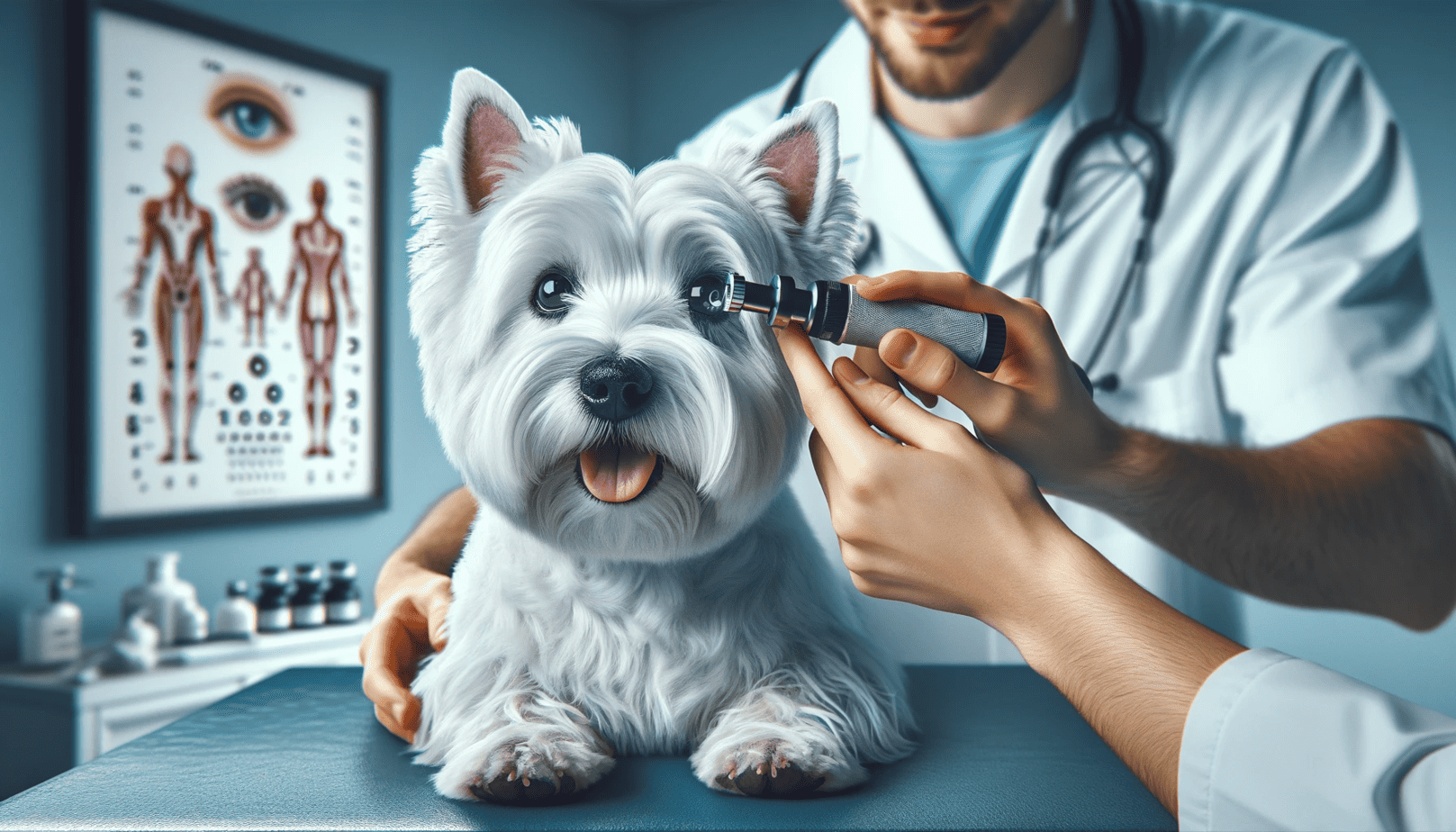
Understanding Westie Specific Eye Structure
As a caring Westie owner, gaining insight into your furry friend’s unique eye structure can be a game-changer in maintaining their optimal eye health. West Highland White Terriers, lovingly known as Westies, have distinctive eye characteristics that set them apart from other breeds – and understanding these can provide the key to preventing and treating common Westie eye health conditions.
Westies are blessed with dark, almond-shaped eyes that are set wide apart. Their eyes, full of expression and intelligence, are one of their most endearing features. However, this specific eye structure also presents certain challenges. The shape and positioning of their eyes, combined with their long eyelashes and dense fur, can make them more susceptible to a range of eye problems.
Their eyes are relatively large compared to their small, compact face, which means they are more exposed to environmental irritants. Additionally, the hair around their eyes can often fall into the eyes, causing discomfort and potentially leading to more serious issues. Therefore, it’s essential to regularly trim the hair around the eyes to prevent these complications.
Furthermore, Westies have a unique third eyelid, also known as the nictitating membrane, which is more prominent than in other dog breeds. This third eyelid serves as an extra protective layer for the eye, but it can also be prone to certain diseases such as Cherry Eye, where the gland in the third eyelid becomes inflamed and visible.
Understanding your Westie’s specific eye structure is the first step towards promoting their eye health. By recognizing the unique characteristics and potential vulnerabilities of your Westie’s eyes, you’re better equipped to prevent, identify, and address any Westie eye health conditions. Remember, the eyes are the windows to your dog’s soul – and as a responsible pet parent, it’s your job to ensure those windows stay clear and bright.
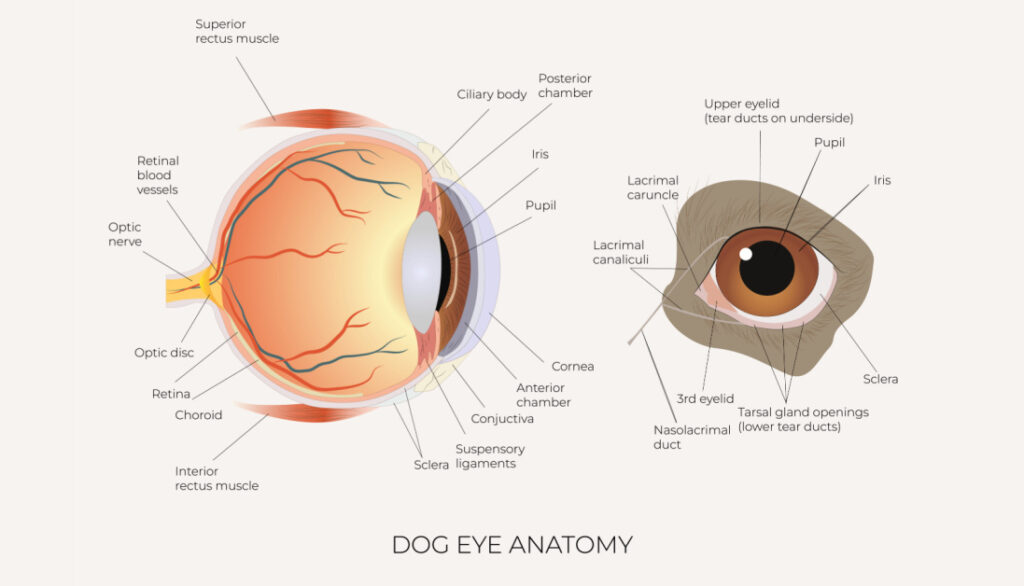
Common Eye Issues In Westies
As a veterinarian, I’ve seen a variety of eye health issues in West Highland White Terriers, more commonly known as Westies. These dogs are adorable, but their eyes can be susceptible to certain conditions. Understanding these issues is the first step in ensuring your Westie’s eyes stay healthy.
One of the most common Westie eye health problems is dry eye, or Keratoconjunctivitis Sicca (KCS). This condition occurs when the dog’s tear glands don’t produce enough tears, causing dryness and discomfort. Symptoms can include redness, itching, and a thick discharge from the eyes.
- Cataracts: This is another common issue in Westies. Cataracts can cause cloudiness in the eye lens, leading to impaired vision or even blindness if left untreated.
- Progressive Retinal Atrophy (PRA): This is a genetic condition that affects the retina, leading to gradual vision loss.
- Corneal Ulcers: These are painful sores on the cornea, the clear front surface of the eye. These can be caused by injury, infection, or lack of tear production.
- Distichiasis: This is a condition where an extra row of eyelashes grows on the inner edge of the eyelid, causing irritation to the eye.
If you notice any changes in your Westie’s eyes, such as redness, cloudiness, excessive tearing, or discharge, it’s crucial to seek veterinary attention immediately. With early detection and treatment, many of these conditions can be managed effectively, preserving your dog’s vision and comfort.
When it comes to Westie Eye Health – Conditions & Solutions From Vet, there are various treatment options available. For dry eye, artificial tears or medicated eye drops can help replenish moisture. Cataracts can often be treated with surgery, while PRA, unfortunately, has no known treatment. However, antioxidant supplements may help slow the progression. Corneal ulcers are typically treated with antibiotics and pain relief, while Distichiasis may require surgical intervention to remove the extra eyelashes.
Remember, regular check-ups are important for early detection of eye issues. As a vet, I always emphasize the importance of preventative care in maintaining your Westie’s eye health.
Prevention of Eye Problems
Ensuring your Westie gets the right nutrients for optimal eye health is essential for maintaining clear vision and preventing age-related issues. Natural, nutrient-rich foods and supplements can play a key role in supporting their eyesight. From vitamin A-packed freeze-dried liver treats to antioxidant-rich blueberries and targeted supplements like Eyeplex by Standard Process, there are several ways to nourish your dog’s eyes. In this section, we’ll explore how these powerful ingredients contribute to long-term vision health and overall well-being.
Eyeplex by Standard Process
Eyeplex by Standard Process is a specialized supplement designed to support your Westie’s eye health with a blend of essential nutrients. Formulated with key vitamins, minerals, and antioxidants, Eyeplex helps protect against oxidative stress, supports retinal function, and promotes overall vision health. Ingredients like vitamin A, vitamin C, and zinc contribute to maintaining strong eyesight, while whole food ingredients provide additional phytonutrients for cellular protection. Adding Eyeplex to your Westie’s diet can be especially beneficial for aging dogs or breeds prone to eye conditions, offering targeted nutritional support to keep their vision sharp and healthy for years to come.
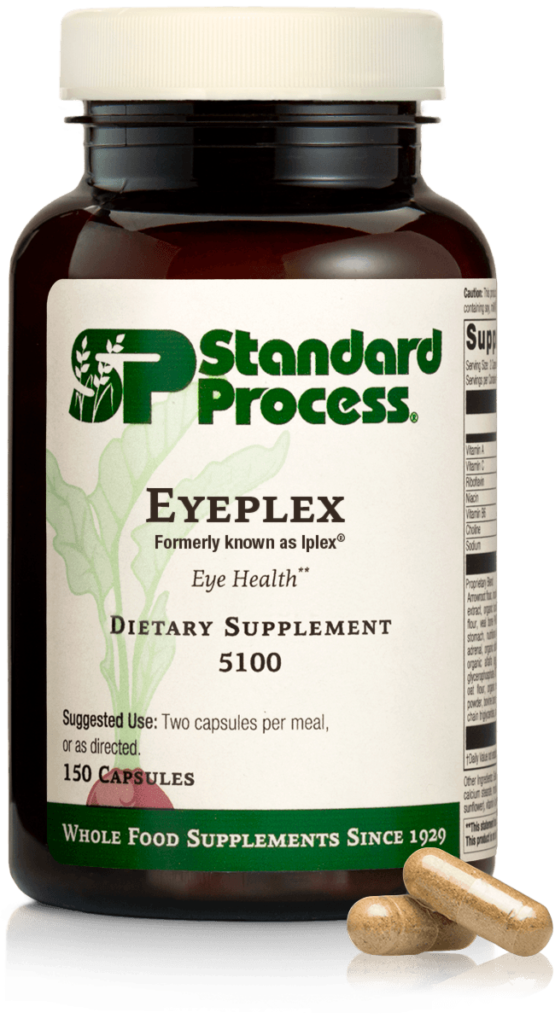
Freeze-Dried Blueberries
Freeze-dried blueberries are a powerhouse of antioxidants that can help protect your Westie’s eyes from oxidative stress and age-related damage. Rich in vitamins C and E, as well as anthocyanins, these tiny but mighty berries help combat free radicals that can contribute to eye diseases like cataracts and macular degeneration. Incorporating freeze-dried blueberries into your dog’s diet provides a natural and delicious way to support retinal health, reduce inflammation, and promote overall vision longevity. Plus, they’re a low-calorie, dog-friendly treat that makes a great addition to a balanced diet for long-term eye health.
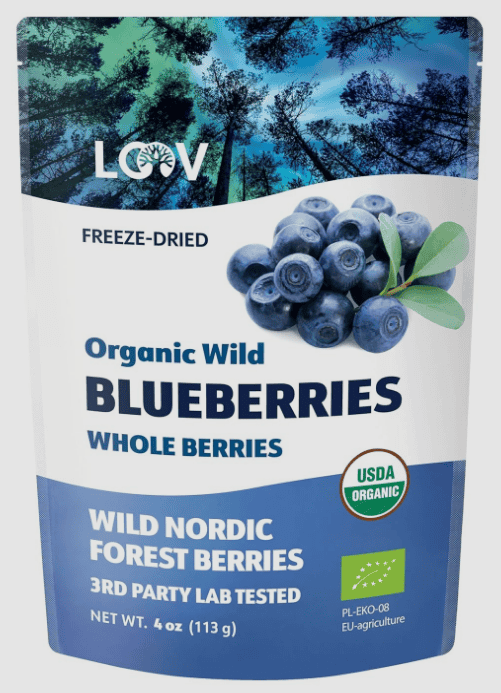
Freeze-Dried Liver
Freeze-dried liver treats are an excellent natural source of vitamin A, an essential nutrient for your Westie’s eye health. Vitamin A plays a crucial role in maintaining good vision, especially in low-light conditions, while also supporting overall immune function and skin health. Since liver is rich in bioavailable vitamin A, incorporating freeze-dried liver treats into your dog’s diet provides a convenient and nutritious way to promote optimal eye function. Just be sure to feed them in moderation, as excessive vitamin A can lead to toxicity. Adding these nutrient-packed treats to your pup’s routine is a simple, tasty way to support their long-term vision and well-being!
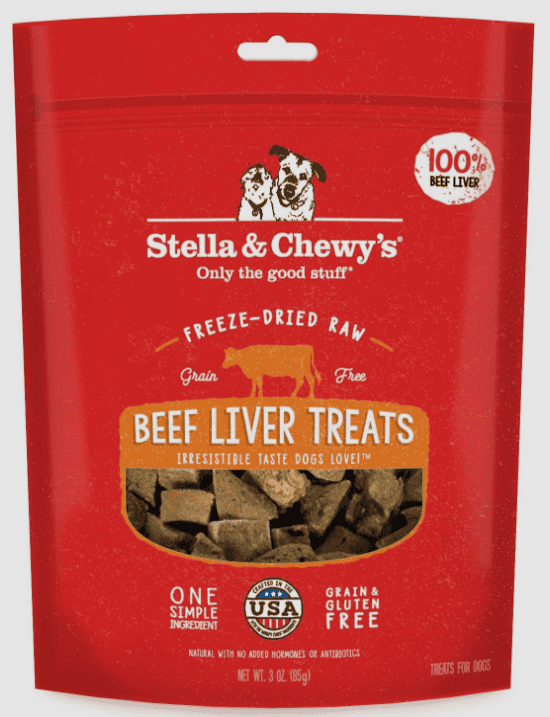
By prioritizing your Westie’s eye health through a balanced diet and nutritional supplements, you can help prevent many common eye issues. These simple steps can go a long way in ensuring your pup’s eyes stay healthy and clear for years to come.
Preventing eye problems in your Westie isn’t just about diet and supplements, though. It’s also about maintaining a clean and safe environment, as well as regular eye care and maintenance, which we’ll discuss in the following sections. Stay tuned!
Environmental Hygiene To Reduce Eye Problems
When it comes to caring for your Westie’s eye health, the environment plays a crucial role. A clean, well-maintained environment can significantly reduce the risk of eye problems in your furry friend. Let’s delve into some key aspects of environmental hygiene that can help maintain your Westie’s eye health.
Indoor Air Quality
First and foremost, it’s essential to ensure good indoor air quality. Poor air quality can irritate your Westie’s eyes, leading to conditions like conjunctivitis or dry eye. Here are some tips to maintain good air quality:
- Regularly clean and vacuum your home to reduce dust and allergens.
- Consider using an air purifier to filter out potential irritants.
- Ensure good ventilation to prevent the build-up of pollutants.
Remember, what’s good for your Westie’s eyes is good for your eyes too!
Sprays, Diffusers, Candles, Incense
While sprays, diffusers, candles, and incense can make your home smell lovely, they can also cause eye irritation in Westies. Here’s what you can do:
- Use these items sparingly and ensure your Westie is in a different room when you do.
- Opt for pet-friendly products. Many brands offer non-toxic, pet-safe options.
- Ensure good ventilation when using these products to disperse any irritants.
Your Westie’s eyes are delicate, and even small irritations can lead to bigger problems. So, it’s best to be cautious.
By maintaining a clean, healthy environment, you can significantly reduce the risk of eye problems in your Westie. This, combined with a good diet and regular eye care, will help ensure your furry friend’s eyes stay bright and healthy.
Remember, your Westie’s eye health is a reflection of their overall health. By taking care of their environment, you’re taking care of them.

Routine Eye Care & Maintenance
Adopting a routine eye care and maintenance schedule is a crucial aspect of ensuring the overall health of your Westie. As a dog parent, it’s important to understand that Westie Eye Health doesn’t solely depend on veterinary interventions but also on your daily and weekly care routines. So, let’s delve into what you can do to keep your furry friend’s eyes in tip-top shape.
Daily & Weekly Care & Maintenance
Just like in humans, a dog’s eyes can tell you a lot about their health. Daily checks should be a part of your routine. Look for any signs of redness, cloudiness, or discharge. If you notice anything unusual, it’s important to consult your vet immediately.
Weekly, you should clean your Westie’s eyes gently with a clean, damp cloth or a pet-specific eye wipe. Remember, never use human products as they might contain ingredients harmful to your dog’s eyes. Also, make sure to wipe in a direction away from the eyes to prevent any potential irritants from getting into the eye.
Monitor Hair Length, Nail Length, Bath Frequency
Another crucial aspect of maintaining Westie Eye Health is monitoring your pet’s hair and nail length. Long hair can irritate the eyes and lead to infections. Therefore, regular grooming is essential to keep the hair around the eyes short and clean. But always be extra careful when trimming the hair around the eyes to avoid accidental injury.
Long nails can also pose a risk to your Westie’s eyes. Dogs often scratch their faces, and long nails can easily scratch the cornea leading to painful injuries. Regular nail trims will help prevent such incidents.
Bathing frequency also plays a role in your Westie’s eye health. While baths are essential to keep your Westie clean, too many baths can strip the natural oils from your dog’s coat and skin, causing dryness and irritation around the eyes. A vet can provide you with guidance on the optimal bath frequency for your Westie.
Remember, the best way to detect any potential Westie Eye Health issues is by observing changes in your dog’s behavior. If your Westie is squinting, pawing at the eyes, or seems to have reduced vision, it’s time to schedule a visit to the vet. Regular vet check-ups can also help detect any eye health issues early and provide timely treatment.
Ultimately, your Westie’s eye health is a reflection of the love and care you provide. With these simple steps, you can ensure your beloved pet maintains healthy eyes and a happy life.
Frequently Asked Questions
1. What are some common eye conditions in Westies?
Some common eye conditions in Westies include dry eye, cataracts, glaucoma, and corneal ulcers.
2. How can I tell if my Westie has an eye problem?
Signs of an eye problem in Westies can include redness, discharge, squinting, excessive tearing, cloudiness, or a change in the appearance of the eye.
3. Can eye conditions in Westies be treated?
Yes, many eye conditions in Westies can be treated. Treatment options may include medications, eye drops, surgery, or other interventions depending on the specific condition.
4. How can I prevent eye problems in my Westie?
To help prevent eye problems in your Westie, it is important to keep their eyes clean and free of debris, avoid exposing them to irritants or allergens, and schedule regular check-ups with a veterinarian.
5. Should I seek veterinary care if my Westie has an eye problem?
Yes, it is recommended to seek veterinary care if your Westie has an eye problem. A veterinarian can properly diagnose the issue and provide appropriate treatment to help preserve your dog’s eye health.
